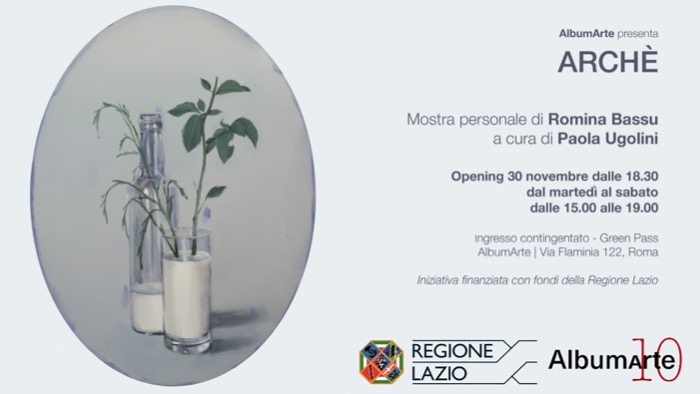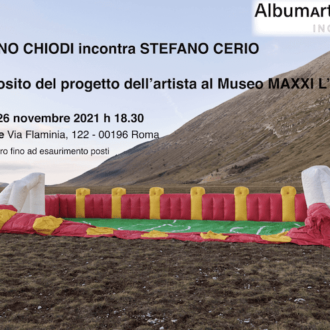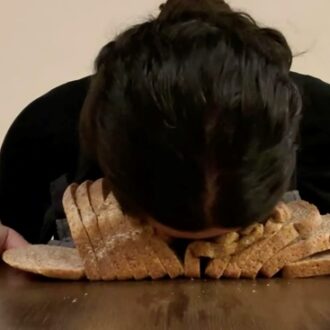Archè | solo exhibition by Romina Bassu
30 November 2021 - 31 December 2021
Via Flaminia 122, Rome, Italy, 00196
AlbumArte
Presents
Romina Bassu
Archè
Exhibition curated by Paola Ugolini
Project direction Cristina Cobianchi
Direction and coordination of debates Daniela Trincia
General project coordination Marta Bracci
OPENING 30 NOVEMBER 2021 from 6.30 p.m
Exhibition open from 30 Novem ber to 31 December 2021
AlbumArte Via Flaminia,122 ROME
The initiative is financed by the Regione Lazio
AlbumArte, an independent space for contemporary art in Rome, presents from 30 November to 31 December 2021, the solo exhibition of Romina Bassu (Rome 1982) entitled “Arché”, which, in addition to the exhibition, will include a series of workshops, guided tours and debates involving various communities active in the area.
The archetype is a content of the collective unconscious, which determines the tendency to react and perceive reality according to typical forms, constant in different cultural groups and historical periods. The archetypes, contained in the deepest levels of the unconscious, are never directly accessible, but emerge in figurative language, myths, dream symbols, folkloric representations, all manifestations that can be used in analytical therapy to investigate the way in which the collective unconscious shapes the fundamental forms of adaptation, so they become social conditioning.
In line with the research of the visual artist Romina Bassu, who has always dealt with social models and stereotypes, trying to analyse them from different points of view, and the attention that AlbumArte has always paid to artistic expression and to the female and gender condition, the solo exhibition “Archè”, reflects on the representation of archetypes as the root of female identity. For “Archè” will be produced unpublished works: seven paintings, each of them wanting to symbolically correspond to an archetype and a set of watercolours and drawings.
The artist intends to enter into profound contact with these figures of mythology, relating to each one in order to synthesise it and poetically trace a path of rehabilitation of the stereotype and profound self-care, which is precious in this very difficult moment in which we have all become more fragile and upset, because rediscovering and legitimising the goddesses within one’s own personality represents an enormous potential for interpreting oneself and social interactions. Myth, in fact, evokes images that, even if not immediately understood, as in dreams, remain important on a symbolic level. Greek mythology reflects the patriarchal society of the time, which has continued in various forms until recent times. In this project we will analyse the influence that these myths have had on the development of female psychology, questioning which Goddesses, or their traits, our culture does not support – for example Aphrodite belittled for her sensuality and condemned to represent, in time, simply the prostitute.
In this series, each painting is intended to correspond symbolically to an archetype: Artemis, goddess of the hunt, represents concentration on the goal and independence; Athena, goddess of wisdom and trades is the symbol of logical thought and strategy, an achievement-oriented archetype; Hestia, goddess of the hearth, points the attention inward and to the spiritual centre of the personality; Hera, goddess of marriage, represents the traditional role of the wife; Demeter, goddess of the harvest, in the myth about her the role of the mother is exalted; Persephone, daughter of Demeter always lives in the ambivalence child-woman; Aphrodite, goddess of love and beauty, brings with her sensuality understood as creative and wild energy.
Activating the archetypes within oneself and putting them in dialogue with each other means carrying out a reconnaissance of identity as opposed to the ideological stereotypes delivered by historical tradition. Rediscovering and legitimising the goddesses within one’s own personality represents an enormous potential for the reading of oneself and of social interactions; this awareness is fixed in one’s relations with others, giving rise to the ethics of collective responsibility.
The project foresees an intense interaction with the territory and the communities, through a dense agenda of appointments during the exhibition, which will involve, among others, some of the participants of the project “Donne (non più) anonime. Conversation on Femicide”, which will give rise to two debates directed and coordinated by Daniela Trincia, on “the archetypes in relation to the social role of women”. The Casa delle Donne Lucha Y Siesta in Rome will be involved in a painting workshop held by the artist. Students from the Academy of Fine Arts in Rome – Menagement for Art course, teacher Marta Silvi – and from a state technical institute in Rome, will take part in a meeting with the psychologist on the theme “Jung and the archetype”.
Special participatory guided tours will be organised, in which students from the RUFA – Rome University of Fine Arts in Rome – courses in Multimedia installations and Performing techniques, lecturer Simone Cametti – and the Academy of Fine Arts in Frosinone – Course in Contemporary Museology, lecturer Adriana Polveroni – will take part. Participatory visit and focus on myths and archetypes, for the Artists Residents of the Real Academia de Espana en Roma.
Thanks to Casale del Giglio for the wine tasting during the opening of the exhibition.

Show map Show cover image




